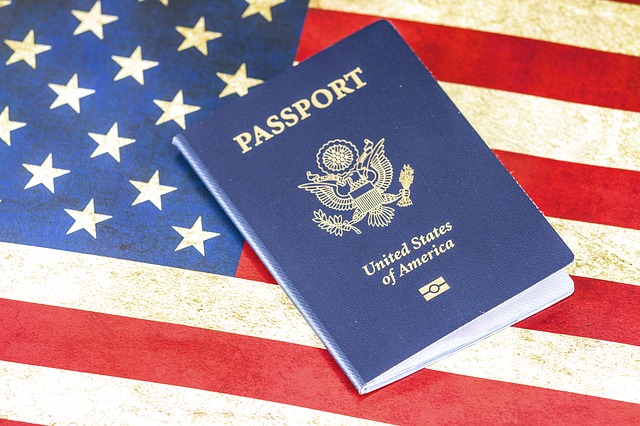Family Immigration to Canada
According to Canadian law, any citizen who has the status of a permanent resident and has reached the age of 18 has the right to sponsor their close relatives so that they can immigrate to Canada.
Sponsors must promise to support the relative or family member and their accompanying family members for a term of 3 to 10 years, depending on the degree of kinship and their age, to help them economically settle in Canada.
Meanwhile, the sponsor must reside in Canada.
As an exception, a Canadian citizen (citizen only, not a permanent resident) residing outside of Canada may sponsor marriage partner or dependent child, provided that the sponsor returns with the family after receiving the sponsored relative’s immigration visa.
Who Can Immigrate Under the Family Class Immigration?
Well, the categories of persons who fall within the definition of family immigration and family sponsorship have been categorized below;
- Close Relatives
Close relatives whom you can sponsor are;
- Husband/wife, as well as an officially registered marriage partner (common-law partner or conjugal partner) aged 16 years and feared.
- Native or adopted dependent children of the sponsor under the age of 22 (dependent child).
- Parents, grandmothers and grandfathers sponsor.
- Children under the age of 18 years (unmarried), if the parents have died, and they come to the sponsor’s brother/sister, nephew/niece, grandsons.
- You can also sponsor one relative of any age if you do not have aunts, uncles or other family members of the above list that you could sponsor.
- Children Adopted From another Country
To take a child from another country, you have to go through both the adoption process and the process of immigration and sponsorship of the adopted child.
- A Spouse or Common-Law Partner, Already Residing In Canada
According to the new law, you can now sponsor a spouse or common-law partner, if they have already moved to Canada and reside with the sponsor.
Sponsorship of a spouse or common-law partner includes the support of their dependent children, regardless of whether they live in Canada or not.
This category does not apply to all families, only to sponsored spouses/partners and children of the marriage.
Temporary Policy on Civil Same-Sex Marriage
Only for immigration, the Ministry of Citizenship and Immigration in Canada has applied a temporary policy regarding recognition of the legitimacy of civil marriages between a foreign citizen and his/her same-sex partner who is a Canadian citizen or permanent resident of the country.
To do this, you must meet the following conditions;
The sponsor should be a Canadian citizen or permanent resident of the country.
Certificate of your marriage must be issued by one of the following areas or territories of Canada;
- Quebec (March 19, 2004, and later)
- Ontario (June 10, 2003, and later)
- British Columbia (July 8, 2003, and later)
- Yukon (dated 14 July 2004 and later)
- Manitoba (dated September 16, 2004, and later)
- Nova Scotia (dated September 24, 2004, and later)
- Saskatchewan (November 5, 2004, and later)
Requirements for the Family Immigration to Canada
If you wish to be reunited in Canada with a relative or a family member living abroad, you should sponsor him/her so that he/she can immigrate as a Family Class.
Below are some major requirements;
- To sponsor a relative or family member, you must sign an undertaking to the Minister of Citizenship and Immigration (Undertaking) (except in the case if you live in Quebec, in this case, you sign an agreement with that province).
- Your commitment to the Government of Canada is that you will support the person you sponsor and their family members for 3 to 10 years so that they do not have to seek social assistance.
- You should also sign a sponsorship agreement with a relative or family member, in which you set out your mutual commitment to each other.
You promise to provide the basic human during the period of this agreement. The person you are sponsoring also makes a promise to make every effort to become economically independent (if he is not an old man).
Dependent children under 22 years of age should not sign a sponsorship agreement.
- If you want to become a sponsor of this class, you may have to meet certain income requirements. In this case, the sponsor must show the presence of a stable income (salary) over the past 12 months, with proof of payment of taxes on income earned.
Duration of the Sponsorship Agreement
Your commitment to supporting your sponsored relative will have the following timelines, based on age and degree of relationship;
- If it is your spouse (officially unregistered marriage partner), you must provide financial support for it within 3 years from the date when he/she became a permanent resident.
- If the person is your common-law partner (a dependent child who is younger than 22 years old), you must provide financial support for 10 years from the date when he became a permanent resident or until he attains the age of 25, if it sooner.
- If this is your common-law partner (a dependent child aged 22 years or older), you must provide him with financial support for 3 years from the date when he became a permanent resident.
- Any other person, not mentioned above, you must provide financial support for 10 years from the date when he became a permanent resident.
The Process Involved in the Family Immigration to Canada
This process consists of two major phases below;
- Obtaining permission for sponsorship.
- Passage of the immigration process sponsored relative.
In this case, the documents prepared for both phases at once and all together are sent for consideration to the Case Processing Centre (located in Mississauga, Ontario).
Then, they decide whether it meets the requirements of the sponsor. If satisfied, the Case Processing Centre will send all the documents of the relative to the Canadian embassy in the country where the sponsored relatives live.
Conclusion
I believe this article has covered most things you know about family immigration to Canada.
You should, therefore, share this article with your colleagues online. They might also be interested in staying with their foreign relatives in Canada.








